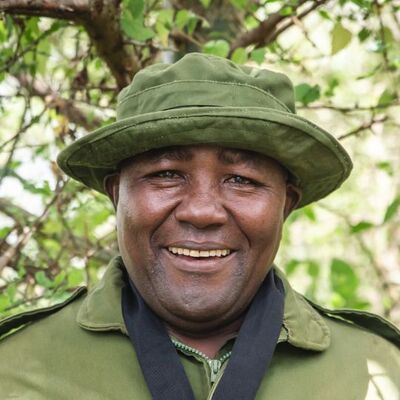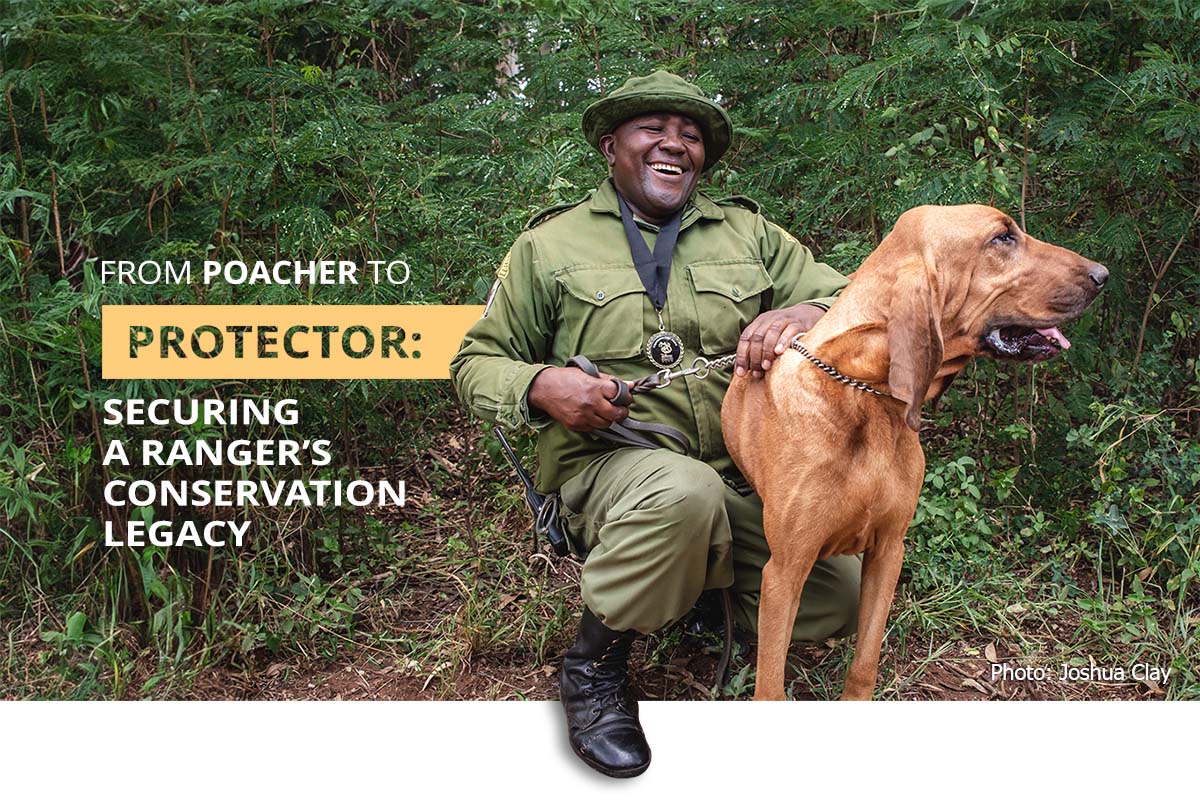
Once, I was a poacher. Now, I am a wildlife ranger.
My path to conservation is an unusual one. I hope my story will inspire you to support rangers like me in Kenya, because your help is vital to our success.
When I was young, my father would leave at night and be gone for weeks. He would come back with bushmeat, pelts, and ivory from the animals he hunted. He eventually started taking me with him. I learned how to set snares, how to track game through the bush, how to wield a spear and poisoned arrows.
We were poor and school was never an option for me. Eventually, I left home and started a family of my own. To help feed my growing family, I turned to what I was good at: poaching.
I was very successful. I killed rhinos for their horns, and elephants for their ivory. I became notorious. But soon I heard rumors of efforts to stop poaching. Men in green uniforms, laying in wait, gathering intelligence, setting ambushes.
I did not enjoy killing animals, I prefer to farm. But I was good at it, and it provided for my family. I also thought there were a lot of animals, so what was the harm. But these rangers, who reported to a man named Richard Bonham, were a growing threat.
Eventually, they caught me. Multiple times. At first, I would serve my sentence, and then go right back to doing what I was good at. But it was becoming impossible to continue poaching in Amboseli. Bonham’s rangers had eyes and ears everywhere, and the warrants for my arrest were mounting. I was on the run, in hiding. Hunted.
Richard Bonham asked to meet with me to discuss a solution that would work for us both. At first, I refused. I felt it was a trap to arrest me and lock me up forever, away from my family. But my wife and kids encouraged me to talk to him. They said, “Be brave for our family.”
Then, he sent me a letter. I didn’t know who this man was beyond his reputation, but his letter convinced me to meet with him. I almost didn’t show, but he patiently waited for hours, alone under an acacia tree in the Chyulu Hills. He spoke my language and told me I didn’t need to poach. He explained that the animals I was killing were at risk of being wiped out forever, a loss that would devastate my community.
Then he said that I could help. I could stop poaching, and share my knowledge with him, and become a wildlife ranger.
I wept. I did not think anyone would help me. I thought I was trapped, and here was a path forward. Something I could be proud of, and my family could be proud of.
Eventually through training and hard work, I was given one of those same green uniforms I had once dreaded. As someone who used to poach, I knew how to stop poachers. The first time I helped arrest someone and saved an elephant, I knew I had found my true calling.
Today, I wear my uniform with pride and oversee our Tracker Dog Unit as one of Big Life’s most senior rangers. My salary has allowed me to put many of my kids through school so they can seek opportunities I never had.
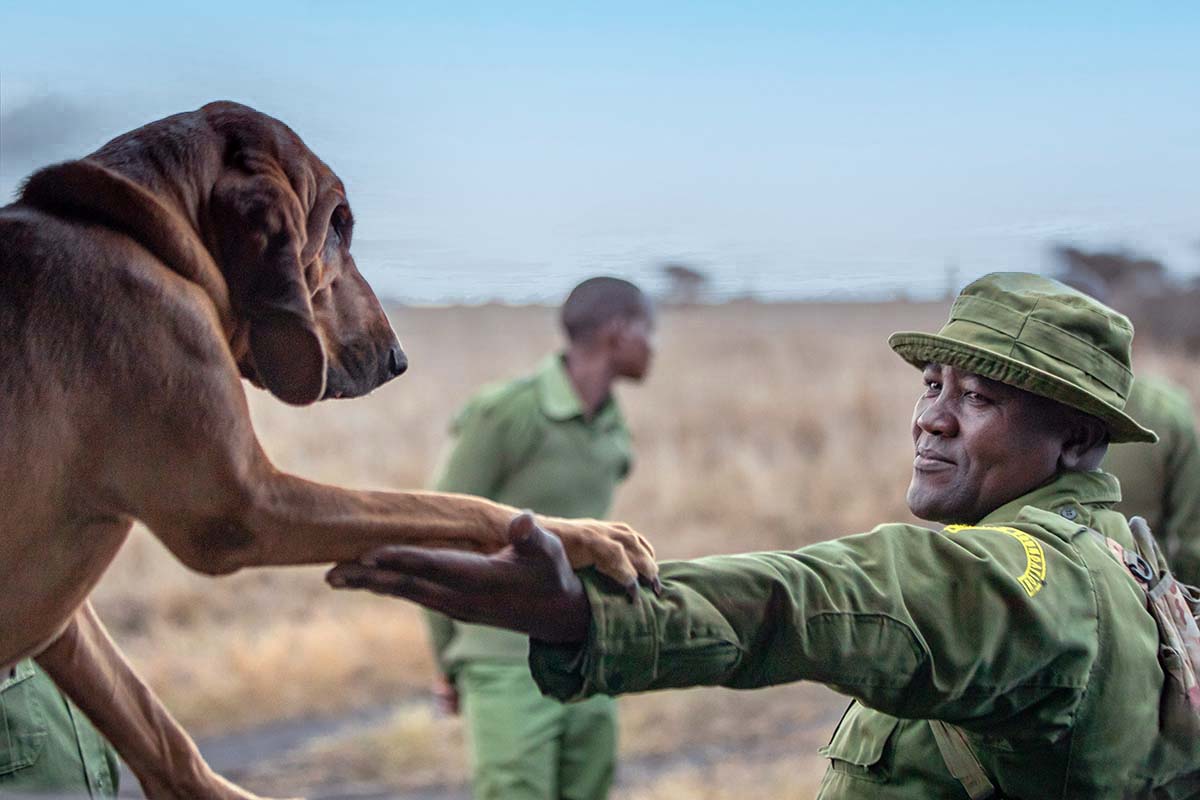 Sergeant Nicholas Mutinda Ndivo and Clyde - Photo: James Suter
Sergeant Nicholas Mutinda Ndivo and Clyde - Photo: James Suter
Over time, I have seen unimaginable changes to my community. Amboseli has developed rapidly, and Big Life is one of the few organizations fighting to save what’s left of my home before it collapses.
In the beginning, there were only a couple dozen of us rangers, all from the local community. Today, we are nearly 400 – many of us brothers, cousins, fathers, sons, and now amazingly, even daughters, wives, sisters, and mothers.
I have been a ranger now for more than 20 years. Even after I’m gone, I want Big Life’s rangers to continue the work we started all those years ago, so that my legacy will be one of conservation, not of killing.
To do that, we need your help. Even as Big Life grows to protect habitat as well as wildlife, my fellow rangers are the beating heart of our operations and the key to our success. But that success is on the line, as our patrol vehicles, outposts, and equipment are in major need of upgrades.
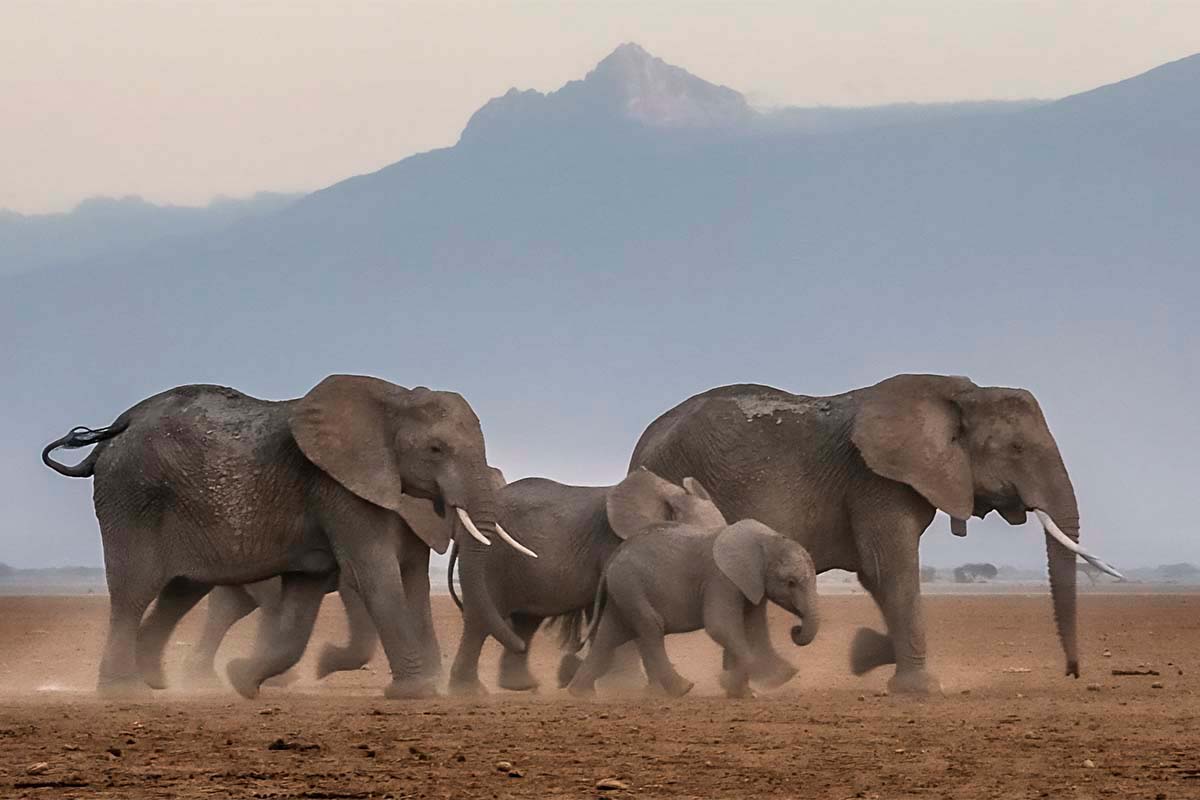 Elephant family - Photo: Axel Fassio
Elephant family - Photo: Axel Fassio
Your donation today will help us to:
- Replace and modernize aging Land Cruisers that carry us on thousands of miles of patrols each year and have had their engines rebuilt multiple times = $75,000/vehicle
- Update and modernize the 32 permanent outposts we maintain across the ecosystem, our home for weeks at a time while on duty and away from our families = $40,000/outpost
- Equip rangers like me with uniforms, boots, radios, tents and other life-saving essentials needed to endure the harsh conditions of the bush = $1,200/ranger
Funding us will not only help us save wildlife, but it will also improve ranger welfare and morale.
Not a single elephant has been poached within Big Life’s area of operation in over six years, nor a single rhino in nine years. That success rate stands among the best across the entire African continent.
Please help us continue this success with a donation today, and keep us in the field, doing what must be done for the Greater Amboseli ecosystem.
We depend on you. Thank you for making our work possible.
Nicholas Mutinda Ndivo
Sergeant & Head of Tracker Dog Unit
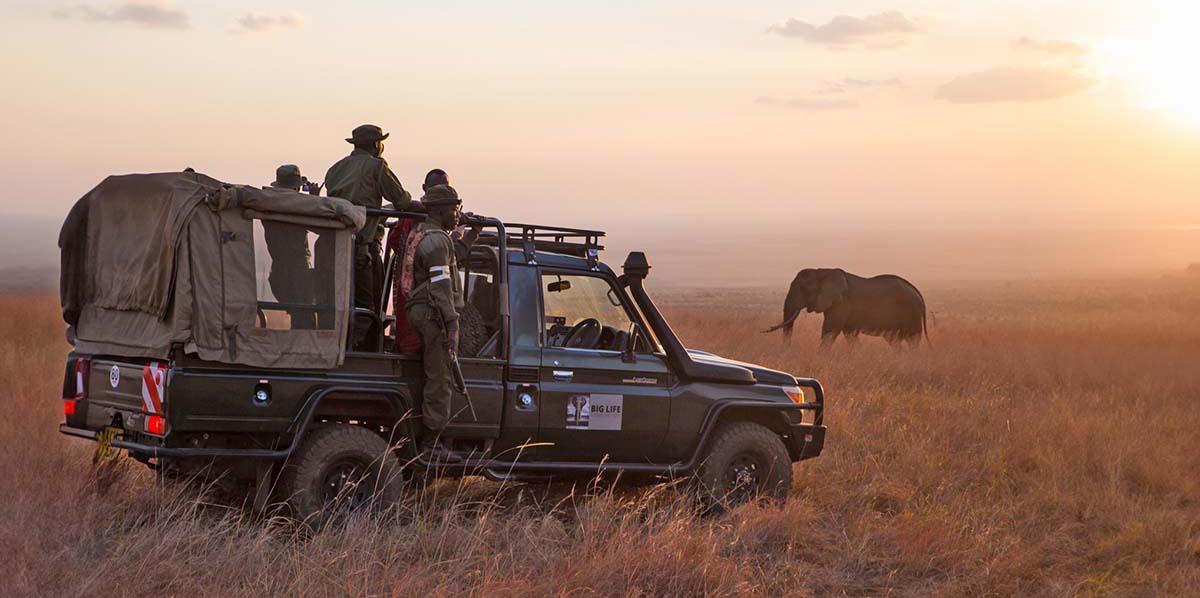 Rangers with elephant - Photo: Jeremy Goss
Rangers with elephant - Photo: Jeremy Goss

